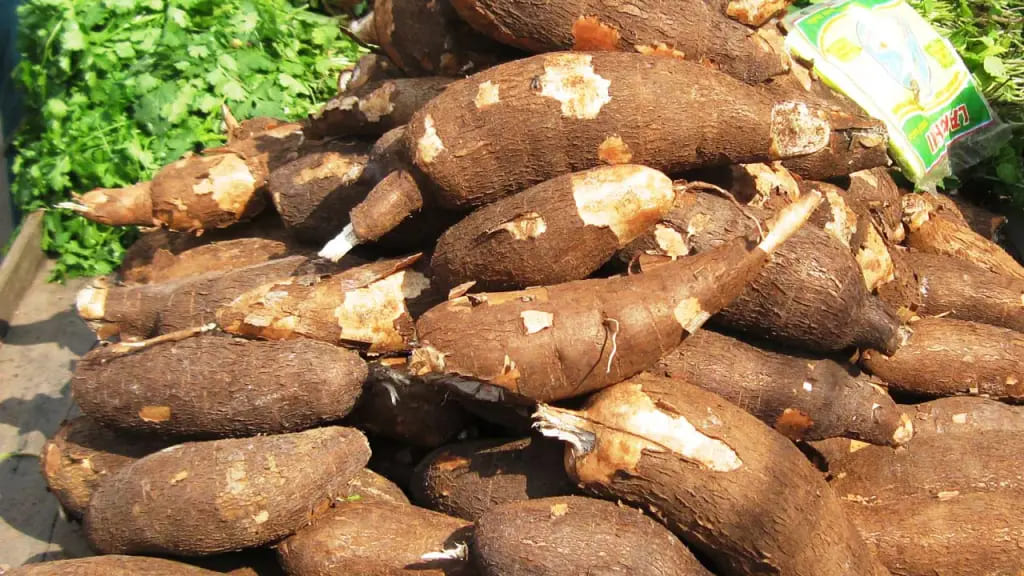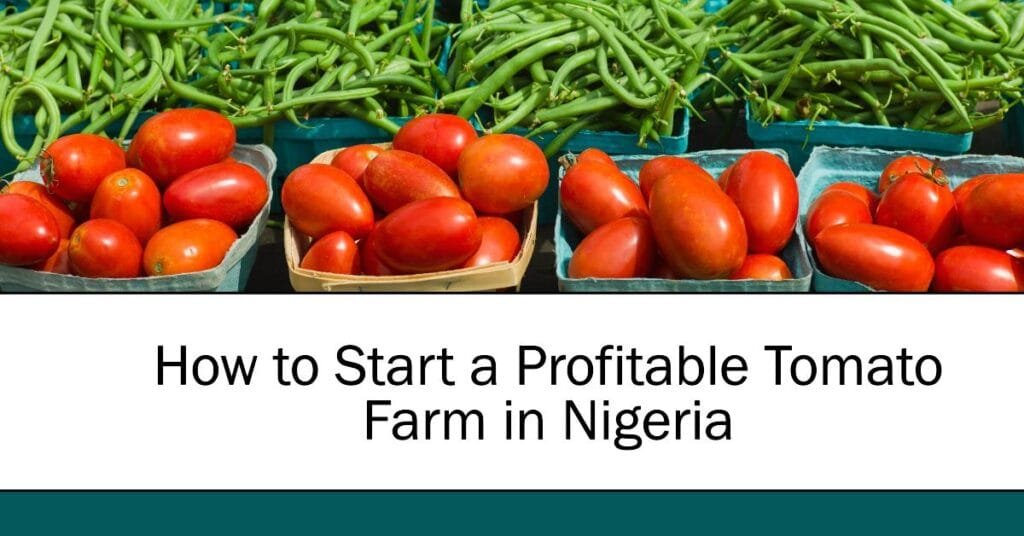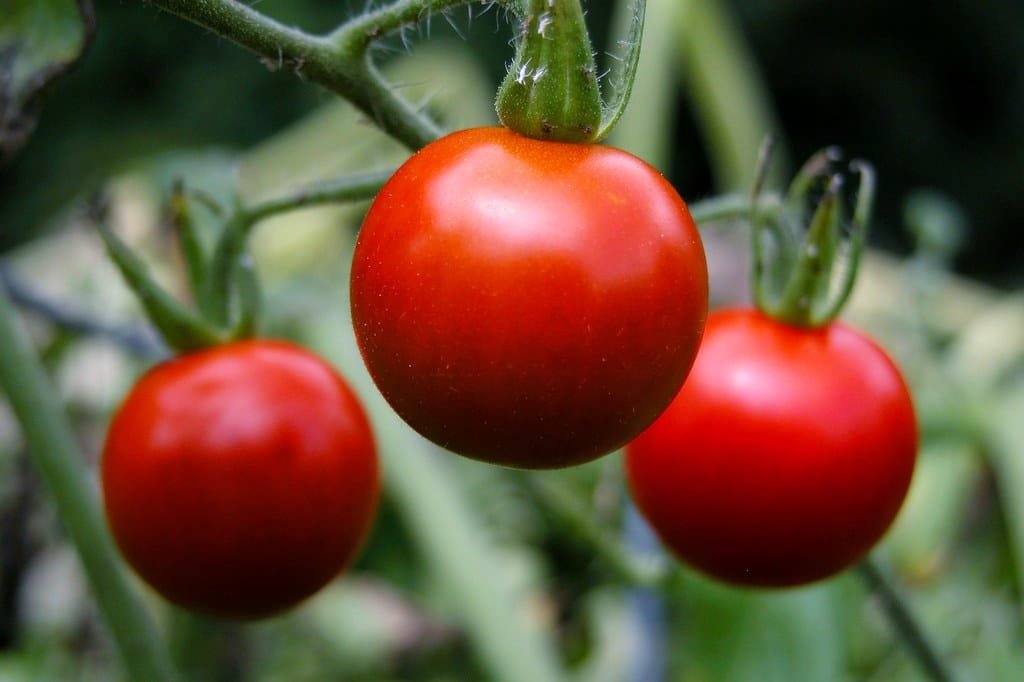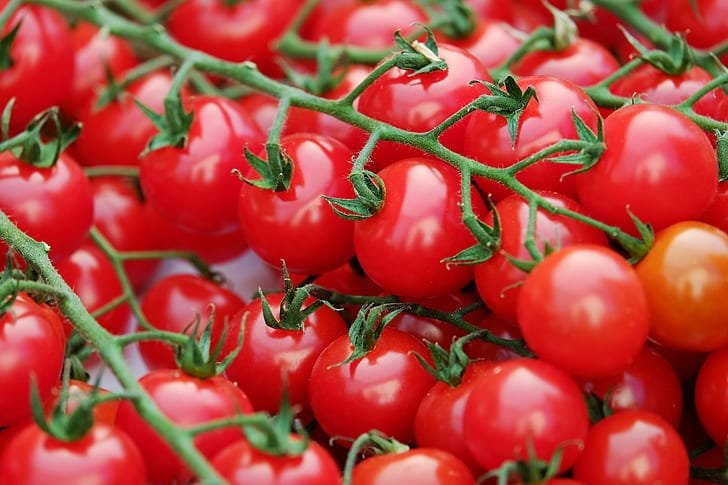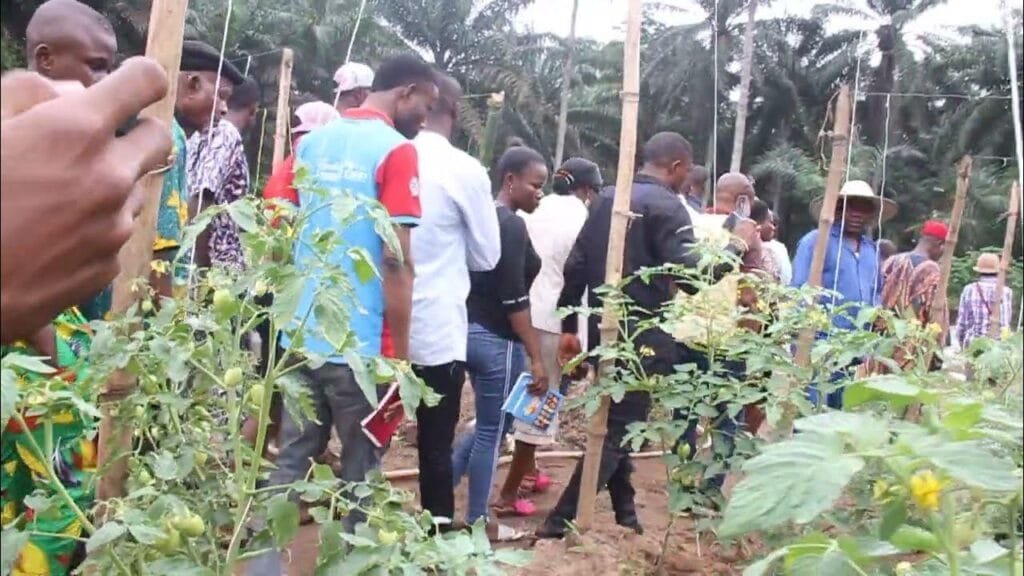Cassava farming in Nigeria is a game changer for anyone looking to secure a profitable future in agriculture. I’m here to share my extensive knowledge and personal experiences on how to start cassava farming in Nigeria. If you’ve ever wondered, “How profitable is cassava farming in Nigeria?” you’re in the right place. This comprehensive guide will answer all your burning questions and provide a rock-solid cassava farming business plan in Nigeria. By the end of this article, you will have the tools you need to start your venture and understand every step of the process.
In my years of experience, I have seen firsthand how cassava farming transforms lives. Whether you’re a seasoned farmer or a newcomer, I’ll walk you through everything—from selecting the right land to harvesting your first crop. I’ll also answer key questions like “How long does cassava take to grow?”, “Is cassava farming profitable?”, and “How many tons of cassava can 1 acre produce?” So, buckle up, and let’s get straight to the essentials!
Introduction to Cassava Farming in Nigeria
Let me start by saying that cassava farming in Nigeria is not just a trend; it’s a proven pathway to economic stability. I first encountered the incredible potential of cassava while exploring rural farming communities, and it changed my outlook on agriculture entirely. This guide is based on research from trusted sources such as Veggie Grow, Green Hills Farmstead, Agric Income, Wikipedia, FAO, and IITA.
Right from the start, I want you to feel excited about the possibilities. How to start cassava farming in Nigeria is a question I answer with enthusiasm, knowing that you can turn this knowledge into a flourishing enterprise. I believe in a direct approach: if you commit to following these steps, you can unlock the vast potential of cassava farming. This isn’t just theory—it’s a practical guide, designed with real-life experiences and actionable insights.
Why Choose Cassava Farming?
I chose cassava farming in Nigeria because it offers multiple benefits. Firstly, cassava is a resilient crop. It thrives even in less-than-perfect conditions, making it ideal for Nigerian soils. Moreover, cassava is a staple in many households, meaning the demand remains consistently high. Every time someone asks, “Is cassava farming profitable?”, my answer is a resounding yes—if managed well.
Key Benefits of Cassava Farming
- High Demand: Cassava is used for food, animal feed, and industrial applications.
- Adaptability: It grows in a variety of soil types and climates.
- Resilience: Cassava tolerates drought, making it suitable during dry spells.
- Economic Growth: It supports both smallholder farmers and large-scale operations.
- Versatility: Cassava can be processed into various products like garri, fufu, and starch.
Every budding entrepreneur must ask, “How profitable is cassava farming in Nigeria?” The answer depends on effective planning and management. I’ve witnessed cases where a good cassava farming business plan turned modest yields into significant profits.
Understanding the Market and Profitability

Before diving headfirst into cassava farming, you need to understand the market. I always emphasize that research is the backbone of any successful agricultural venture. Ask yourself, “How many tons of cassava can 1 acre produce?” While the answer varies, many successful operations report impressive yields when the right methods are applied.
Market Insights
- Demand and Supply: Cassava is in high demand for both domestic consumption and export.
- Profit Margins: With proper management, margins are healthy. I often answer “is cassava farming profitable” by referring to cost-benefit analyses.
- Investment Return: A well-structured cassava farming business plan in Nigeria ensures a swift return on investment.
I recall meeting farmers who, despite initial challenges, ended up enjoying great success due to persistent efforts and a clear strategy. Their experiences highlight the importance of a detailed business plan on cassava farming. If you’re asking “How profitable is cassava farming in Nigeria?”, then these success stories should inspire you.
Developing a Cassava Farming Business Plan
Crafting a comprehensive cassava farming business plan is essential. I always start by laying out my goals, budgets, and timelines. My cassava farming business plan in Nigeria covers everything from the initial investment to final sales. This plan is my roadmap, and it can be yours too.
Key Components of the Business Plan
- Objective: Clearly define your farming goals.
- Budget: Allocate funds for land, labour, equipment, and inputs.
- Timeline: Outline key milestones from planting to harvest.
- Market Analysis: Understand local demand and potential buyers.
- Risk Assessment: Identify potential challenges and plan for contingencies.
The following table summarizes these elements:
| Component | Details |
| Objective | Set clear, measurable goals for your cassava farming in Nigeria venture. |
| Budget | Include costs for land, quality cassava cuttings, labor, and farming equipment. |
| Timeline | Schedule phases like land preparation, planting, maintenance, and harvesting. |
| Market Analysis | Research local and international markets to understand demand trends. |
| Risk Assessment | Identify risks such as pest infestations and weather uncertainties; plan mitigations. |
I always remind myself and others that a sound cassava farming business plan in Nigeria is the backbone of your success. This document not only guides you but also helps in securing loans and attracting investors.
Site Selection and Soil Preparation
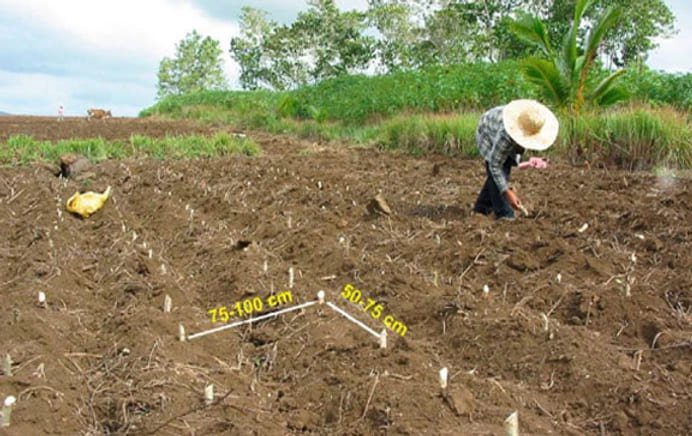
I cannot stress enough the importance of choosing the right land. When planning cassava farming in Nigeria, the first question I ask is, “What type of soil is best for growing cassava?” The answer is clear: sandy loam with excellent drainage is ideal.
How to Choose the Perfect Site
- Location: Select a site with good access to water and transportation.
- Soil Quality: Conduct soil tests to ensure nutrient-rich soil. I always opt for areas with a history of successful cultivation.
- Climate: Choose regions with a predictable rainy season. This helps answer “Which month is best for planting cassava?”
Soil Preparation Tips
- Testing: Get your soil tested for pH and nutrient content.
- Amendments: Add organic matter like compost to boost fertility.
- Ploughing: Ensure the land is ploughed and ridged properly for planting.
I recall a time when a friend ignored proper soil preparation. His yields suffered, and he learned the hard way why every step matters. This is why every section of a cassava farming business plan includes detailed soil preparation guidelines.
Cassava Varieties and Quality Cuttings
The success of cassava farming in Nigeria also depends on selecting the right variety. Different types of cassava offer varying benefits. I always stress quality over quantity. You must ask, “What is the best method of planting cassava?” and “How many bags of cassava cuttings per acre?”
Popular Cassava Varieties
- TME 419: Known for high yield and disease resistance.
- TMS 30572: Favored for its versatility and adaptability.
- Bitter vs. Sweet Cassava:
- Bitter Cassava: Contains higher cyanide levels, requiring proper processing.
- Sweet Cassava: Preferred for direct consumption, lower in toxins.
Every choice matters in my cassava farming business plan in Nigeria. For quality and sustainability, always select certified cuttings from reputable sources. I always encourage farmers to invest in quality cuttings to ensure that when asked, “Is cassava farming profitable?”, the answer is rooted in solid production.
How Many Bags of Cuttings?
For a successful planting, you need to plan carefully. Generally, farmers recommend a specific number of bags per acre based on the planting method and variety. This detail is crucial in a business plan on cassava farming. I always reference my notes and cassava farming in Nigeria pdf resources for precise numbers.
Planting Techniques and Best Methods
Next, let’s get our hands dirty—literally. Knowing how to start cassava farming in Nigeria requires an understanding of planting techniques. I’ve seen many succeed by using staggered rows, which improve air circulation and reduce disease incidence.
What is the Best Method of Planting Cassava?
- Staggered Rows: This method maximizes space and minimizes competition for nutrients.
- Spacing: Typically, a spacing of 1 meter between plants is ideal.
- Cutting Length: Use cuttings that are 20-25 centimeters long.
I always stress that the right method answers the question, “What is the best method of planting cassava?” while addressing other queries like, “How many bags of cassava cuttings per acre?” and “How long does cassava take to grow?” Each technique must be tailored to your specific conditions and goals.
Step-by-Step Planting Process
- Marking the Field: Use stakes to mark rows.
- Digging Trenches: Trenches help in proper root development.
- Placing Cuttings: Lay the cuttings at an angle with the bud facing upward.
- Covering and Firming: Gently cover the cuttings with soil and press down firmly.
By following these steps, I’ve consistently seen improved growth and yield. Moreover, intercropping can be introduced at this stage if you’re wondering, “Can I plant maize and cassava together?” I advise that while it’s possible, careful planning is key to avoid competition.
Timing Your Planting: Best Month and Maturity Period
Timing is everything in cassava farming in Nigeria. If you’ve ever wondered, “Which month is best for planting cassava?” or “What is the maturity period of cassava?”, here’s what you need to know.
Best Month for Planting Cassava
The ideal planting month often depends on your region. In many parts of Nigeria, the early rainy season works best. This timing provides enough moisture for the cuttings to root effectively. I always check local weather patterns and use historical data from cassava farming in Nigeria pdf guides.
Maturity Period
Cassava typically matures between 12 and 18 months, which answers the frequently asked question, “What is the maturity period of cassava?” However, some varieties may mature a bit earlier or later. Aligning your cassava farming business plan with these timelines is essential to optimizing harvest cycles.
Importance of Timing
Proper timing affects growth and determines yield quality. I remember one season when misjudging the planting time led to subpar growth. Since then, I’ve never compromised on timing. To answer “How long does cassava take to grow?” accurately, always consider both the variety and local climatic conditions.
Intercropping and Companion Planting
Many new farmers ask, “Can I plant maize and cassava together?” The answer is yes, but it requires careful planning. Intercropping is a fantastic strategy to maximize land use, but it comes with its own set of challenges.
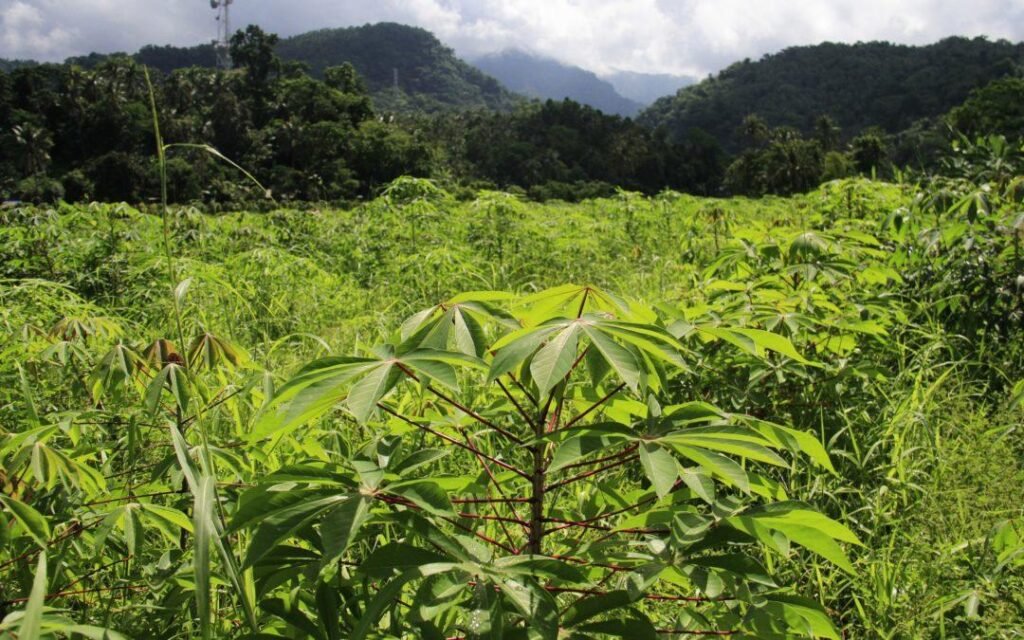
Benefits of Intercropping
- Maximized Land Use: Growing multiple crops increases overall productivity.
- Pest Control: Some crops naturally repel pests that may affect cassava.
- Diversified Income: You’re not putting all your eggs in one basket.
Considerations for Intercropping
When planning intercropping, consider factors such as water requirements, nutrient competition, and planting density. For example, maize might need more nitrogen than cassava. I always plan my cassava farming business plan in Nigeria with these factors in mind.
Practical Tips
- Plan Layout: Use diagrams to plan the layout of your intercropping.
- Monitor Growth: Keep an eye on both crops to ensure neither is stunted.
- Adjust Practices: Be ready to change practices if one crop starts dominating.
This approach not only answers “Can I plant maize and cassava together?” but also enhances your overall farming strategy. Incorporate these tips into your business plan on cassava farming to optimize your field’s productivity.
Maintenance: Weed, Pest, and Disease Control
After planting, the next big step in cassava farming in Nigeria is maintenance. I always emphasize that consistent maintenance is the key to a healthy crop. Regular weeding, pest control, and monitoring for diseases can make or break your yields.
Common Pests and Diseases
- Cassava Mosaic Disease: A viral disease that can severely affect yield.
- Cassava Green Mite: These tiny pests can damage the leaves.
- Weeds: They compete for nutrients and water.
How to Manage Them
- Weeding: Regular weeding is crucial, especially in the early stages. I advise manual weeding or using herbicides when necessary.
- Pest Control: Use environmentally friendly pesticides and biological controls. Natural predators can also help manage pest populations.
- Disease Management: Early detection is vital. I always recommend periodic inspections to catch diseases early.
I always ask, “Is cassava farming profitable?” and the answer is yes when you take maintenance seriously. A robust cassava farming business plan in Nigeria will always include a section on pest and disease management.
Preventive Measures
- Crop Rotation: This can help in reducing the buildup of pests.
- Resistant Varieties: Plant varieties that are resistant to common diseases.
- Proper Spacing: Adequate spacing helps prevent disease spread.
Maintaining your crop well not only ensures higher yields but also answers “How long does cassava take to grow?” by promoting healthy, consistent growth.
Harvesting and Post-Harvest Management
Harvest time is a moment of triumph in cassava farming. Knowing how to start cassava farming in Nigeria is only half the battle; harvesting is where your efforts pay off.
When to Harvest?
The answer to “What is the maturity period of cassava?” is crucial here. Generally, cassava is ready for harvest between 12 to 18 months. Harvesting too early may lead to lower yields while harvesting too late can cause the roots to deteriorate.
Harvesting Techniques
- Manual Harvesting: This involves digging out the roots carefully. I always suggest using the right tools to avoid damaging the crop.
- Mechanical Harvesting: For larger farms, machinery can speed up the process. This method is efficient but requires a higher initial investment.
Post-Harvest Processing
After harvesting, proper processing is essential to maintain quality. Cassava must be processed quickly to prevent spoilage. Methods include:
- Peeling and Washing: Remove the skin and clean the roots.
- Processing: Convert the roots into products like garri, fufu, or starch.
- Storage: Proper storage in cool, dry conditions ensures longer shelf-life.
I always ensure that my cassava farming business plan includes detailed post-harvest processes. This way, when someone asks “Is cassava farming profitable?”, you can point to the entire chain—from planting to market readiness—as a major factor.
Financial Management and Profit Analysis
One of the most frequently asked questions is, “How profitable is cassava farming in Nigeria?” The answer lies in proper financial management. I believe a detailed financial plan is integral to any cassava farming business plan in Nigeria.
Key Financial Considerations
- Initial Investment: Costs for land, seeds (cuttings), labour, and equipment.
- Operating Costs: Expenses for maintenance, pest control, and processing.
- Revenue Streams: Sales of fresh cassava and processed products.
- Profit Margins: Analyzing the difference between income and expenses.
Creating a Financial Plan
I start by estimating costs and projecting revenue. This includes setting a budget for each phase of the operation. I use spreadsheets and financial software to track expenses meticulously. A typical breakdown might look like this:
| Expense Category | Estimated Cost (NGN) | Notes |
| Land Preparation | 100,000 | Includes soil testing and amendments |
| Quality Cuttings | 50,000 | Labour |
| Labor | 200,000 | For planting, maintenance, and harvesting |
| Pest & Disease Control | 75,000 | Organic pesticides and manual labor |
| Processing Equipment | 150,000 | For washing, peeling, and storage |
| Miscellaneous | 25,000 | Contingencies and unexpected expenses |
This table is a sample representation and can be adjusted as per your specific needs. Proper financial planning ensures you answer “How profitable is cassava farming in Nigeria?” with clear, data-driven projections.
Profit Analysis
After harvest, calculate your yield and determine profit margins. Many successful ventures track their results and adjust their strategies over time. I constantly evaluate my cassava farming business plan to ensure I’m on track and profitable. This iterative process is key to sustainability and growth.
Advanced Techniques and Innovations
As you grow your cassava farming in Nigeria venture, consider incorporating advanced techniques and innovations. I always keep an eye on emerging trends to stay ahead of the curve.
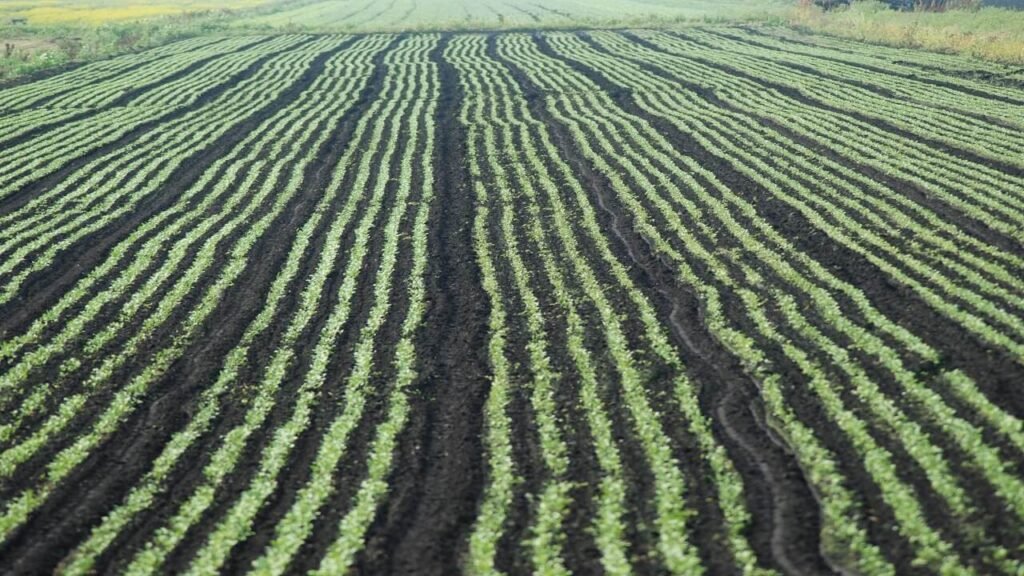
Precision Agriculture
Precision agriculture involves using technology to monitor crop conditions in real-time. This might include satellite imagery, soil sensors, and mobile apps. By integrating these tools, you can more accurately answer questions like “How many tons of cassava can 1 acre produce?” and adjust your practices accordingly.
Improved Storage and Processing
Investing in better storage facilities and processing equipment can significantly extend the shelf life of your cassava. Processing not only adds value but also opens up new markets. With the right cassava farming business plan in Nigeria, you can invest in machinery that ensures your product remains fresh and market-ready for longer periods.
Sustainable Practices
Sustainability is key to long-term success. I always promote the use of organic fertilizers, crop rotation, and integrated pest management. Sustainable practices not only protect the environment but also ensure that your land remains fertile for future cassava farming. They also address concerns such as “Is cassava farming profitable?” in the long run by lowering input costs and preserving soil health.
Research and Development
Continuously learning about new varieties and improved farming techniques is essential. Attend workshops, join agricultural cooperatives, and subscribe to updates from research institutions. These efforts contribute to refining your cassava farming business plan and keeping you updated with answers to questions like “What is the best method of planting cassava?” and “Which month is best for planting cassava?”
Marketing Your Cassava Products
An often-overlooked aspect of cassava farming in Nigeria is the marketing side. I always say that even the best crop won’t sell itself if you don’t know how to market it effectively.
Developing a Marketing Strategy
- Identify Your Market: Understand who your buyers are. Are you targeting local markets, processors, or export markets?
- Branding: Create a brand for your cassava products. A unique identity can help differentiate you from competitors.
- Distribution Channels: Develop robust distribution channels. This could be through direct sales, cooperatives, or partnerships with processing companies.
Utilizing Digital Platforms
In today’s digital world, social media and online marketplaces play a huge role. I personally use platforms like Facebook and Instagram to showcase my journey and products. This not only builds your brand but also provides a direct answer to “Is cassava farming profitable?” when you see your customer base grow.
Price Strategies
Setting the right price is critical. Research local market prices and set competitive rates. I always refer to data from cassava farming in Nigeria pdf resources and local trade associations to get accurate figures.
Risk Management and Contingency Planning
Every venture comes with risks. In cassava farming, these risks can range from unpredictable weather to pest infestations. I always stress that a good cassava farming business plan must include risk management strategies.
Identifying Risks
- Weather Variability: Unpredictable rains or prolonged droughts.
- Pest and Disease Outbreaks: Cassava is vulnerable to certain pests and diseases.
- Market Fluctuations: Prices can fluctuate due to market oversupply or changes in demand.
Contingency Measures
- Insurance: Consider crop insurance to mitigate losses.
- Diversification: Grow multiple crops to spread the risk.
- Emergency Funds: Set aside funds to manage unforeseen expenses.
A detailed risk management plan helps answer the question, “How profitable is cassava farming in Nigeria?” by ensuring that you are prepared for any setbacks. I include these strategies in every cassava farming business plan in Nigeria that I develop.
Training, Education, and Community Involvement
Knowledge is power in cassava farming. I have always found that the more educated you are, the better your chances of success. I actively participate in training sessions and workshops and encourage other farmers to do the same.
Educational Resources
- Workshops and Seminars: Attend local agricultural seminars to stay updated on the latest techniques.
- Online Courses: There are many free and paid courses on how to start cassava farming in Nigeria that can provide valuable insights.
- Research Papers and PDFs: Refer to documents like cassava farming in Nigeria pdf to understand the latest research findings.
Community Involvement
Joining a community of farmers offers many benefits. You get access to shared experiences, collective problem-solving, and bulk purchasing opportunities. I believe that community involvement is key to addressing questions such as “Is cassava farming profitable?” on a broader scale.
Government Policies and Support
Government policies and support programs can significantly impact cassava farming in Nigeria. I always keep an eye on any updates regarding agricultural policies, subsidies, or grants that can boost your venture.
How Policies Affect Cassava Farming
- Subsidies and Grants: The government often offers financial support to farmers.
- Research and Extension Services: Many agricultural extension services are available to help you with best practices.
- Infrastructure Development: Improved roads and market facilities can enhance distribution.
Being aware of these policies not only strengthens your cassava farming business plan but also answers critical questions like “How profitable is cassava farming in Nigeria?” by reducing overhead costs.
Future Trends and Innovations
Looking ahead, cassava farming in Nigeria is poised for growth. Innovations in technology, genetics, and sustainable practices continue to reshape the industry. I remain excited about these developments and always incorporate them into my planning.
Emerging Trends
- Biotechnology: New varieties with higher yields and disease resistance are being developed.
- Digital Agriculture: Mobile apps and data analytics are revolutionizing how we manage crops.
- Sustainability: There is a growing emphasis on eco-friendly practices that ensure long-term soil health and productivity.
By staying informed about future trends, you can ensure your cassava farming business plan in Nigeria remains relevant and effective.
Practical Tips for Success
Here are some of my top practical tips to ensure your success in cassava farming:
- Plan Meticulously: A robust cassava farming business plan is your roadmap.
- Invest in Quality: Use certified cuttings and high-grade inputs.
- Monitor Regularly: Regular inspections can catch problems early.
- Stay Informed: Keep up with the latest research and trends.
- Network: Connect with fellow farmers to share experiences and advice.
Every one of these tips comes from years of personal experience. They address critical questions such as “What is the best method of planting cassava?” and “What type of soil is best for growing cassava?” By implementing these tips, you set yourself up for success.
Overcoming Challenges in Cassava Farming
Like any agricultural venture, cassava farming in Nigeria comes with its share of challenges. I remember the first time I encountered a severe pest outbreak—it was a tough lesson in vigilance and adaptation. However, challenges are opportunities in disguise if you know how to address them.
Common Challenges
- Unpredictable Weather: Droughts or excessive rain can affect crop yield.
- Pest Outbreaks: Infestations can quickly ruin your harvest.
- Financial Constraints: Limited capital can hinder growth.
Strategies to Overcome Challenges
- Diversify Your Crops: Don’t rely solely on cassava; intercropping can mitigate risks.
- Invest in Technology: Modern tools can help monitor weather and pest conditions.
- Plan Financially: Always have a contingency fund ready.
These strategies have helped me answer the question, “How profitable is cassava farming in Nigeria?” by ensuring that even when challenges arise, your overall operation remains robust.
The Role of Research and Innovation
I cannot overstate the importance of research in cassava farming. Constantly updating your knowledge base is key to staying competitive. Whether you refer to cassava farming in Nigeria pdf documents or attend workshops, learning is a continuous process.
How Research Enhances Profitability
- Better Varieties: Research leads to improved cassava strains with higher yields.
- Efficient Methods: Innovation in planting and processing can cut costs.
- Market Insights: Up-to-date research helps you understand demand and pricing.
I encourage every farmer to integrate research into their daily practices. It not only helps answer “How many tons of cassava can 1-acre produce?” but also ensures your cassava farming business plan in Nigeria remains dynamic and effective.
Scaling Up Your Operations
Once you’ve mastered the basics, the next question many ask is, “How to start cassava farming in Nigeria” on a larger scale. Scaling up requires a careful strategy, additional capital, and more advanced planning.
Steps to Scale Your Farm
- Increase Land Area: Gradually expand your farming area.
- Invest in Better Technology: Use modern equipment for planting and harvesting.
- Hire Skilled Labor: As your operation grows, having a trained team is crucial.
- Expand Marketing: Broaden your distribution channels to reach larger markets.
Scaling up is not just about increasing production; it’s about enhancing efficiency and profitability. My journey in scaling my cassava farming in Nigeria operation taught me that every additional acre must be managed with the same precision as the first.
Integrating Sustainability Practices
Sustainability is the future of cassava farming in Nigeria. I always incorporate eco-friendly practices into my operations. Sustainable farming not only protects the environment but also improves profitability in the long run.
Sustainable Practices to Adopt
- Organic Fertilizers: Use compost and manure instead of chemical fertilizers.
- Water Conservation: Implement irrigation systems that reduce water waste.
- Crop Rotation: Rotate cassava with legumes to maintain soil fertility.
- Renewable Energy: Consider solar-powered equipment for field operations.
These practices help ensure that your cassava farming business plan in Nigeria is not only profitable today but also sustainable for future generations.
Leveraging Partnerships and Networks
One of the most rewarding aspects of cassava farming is the sense of community. I’ve seen how partnerships with local cooperatives, research institutions, and financial organizations can boost success. Networking is essential to answer questions like “Is cassava farming profitable?” because it opens doors to shared knowledge and resources.
Benefits of Partnerships
- Bulk Purchasing: Lower costs for inputs like quality cassava cuttings.
- Shared Resources: Access to modern equipment and research.
- Market Access: Partnerships can expand your distribution network.
I always encourage new farmers to build strong networks. A solid support system is invaluable in every aspect of cassava farming in Nigeria.
Case Studies and Real-Life Examples
Let me share a few real-life examples to illustrate how these strategies work in practice. I’ve met several farmers whose success stories are nothing short of inspiring.
Case Study 1: The Transformative Journey
A friend of mine started his journey with cassava farming in Nigeria five years ago. He began with a modest plot and a basic cassava farming business plan. Initially, he struggled with pest control and improper spacing, which led to lower yields. However, after revising his strategy based on a detailed business plan on cassava farming, he improved his yields significantly. Today, he regularly exceeds the benchmark of How many tons of cassava can 1 acre produce? His secret was in continuous learning and adapting, which is the cornerstone of how to start cassava farming in Nigeria.
Case Study 2: Intercropping Success
Another farmer successfully combined maize with cassava. When asked, “Can I plant maize and cassava together?”, he found that careful planning was key. He set up his fields with alternating rows of maize and cassava. This intercropping method not only maximized land use but also provided additional income during the cassava’s long growing period. His cassava farming business plan in Nigeria included detailed notes on intercropping, helping him answer the question, “Is cassava farming profitable?” with a clear yes.
Case Study 3: Adopting Technology
I also encountered a progressive farming cooperative that used technology to monitor their crops. They relied on data from cassava farming in Nigeria pdf guides and integrated digital tools to track growth, moisture levels, and pest occurrences. Their technological approach allowed them to fine-tune every aspect of their cassava farming business plan. When they answered “How long does cassava take to grow?”, the data was precise and allowed them to plan harvest cycles with confidence.
These examples show that no matter the scale, a well-structured cassava farming business plan and a commitment to continuous improvement are essential for success. Each case study reinforces the idea that understanding local conditions, planning meticulously, and being willing to adapt can help answer “How profitable is cassava farming in Nigeria?” with tangible results.
Frequently Asked Questions (FAQs)
Here, I’ve compiled a set of FAQs that have helped many understand the nuances of cassava farming.
Q1: How long does cassava take to grow?
Answer: Cassava typically matures between 12 to 18 months. This timeline is crucial for planning your planting and harvesting schedules.
Q2: Is cassava farming profitable?
Answer: Yes, is cassava farming profitable when managed with a sound cassava farming business plan in Nigeria. Profitability depends on proper planning, maintenance, and market access.
Q3: How many tons of cassava can 1 acre produce?
Answer: Yields vary based on several factors. With optimal practices, you can achieve significant yields. This is why a detailed cassava farming business plan is essential.
Q4: Which month is best for planting cassava?
Answer: The early rainy season is usually ideal in many parts of Nigeria. This timing ensures the cuttings establish roots effectively.
Q5: What is the best method of planting cassava?
Answer: The staggered row method with proper spacing is recommended. This method answers the question, “What is the best method of planting cassava?” while optimizing growth.
Q6: How many bags of cassava cuttings per acre?
Answer: This depends on your field’s layout and spacing requirements. Consult cassava farming in Nigeria pdf guides for specific recommendations.
Q7: Can I plant maize and cassava together?
Answer: Yes, you can inter-crop maize and cassava, provided you plan the layout carefully.
Q8: What type of soil is best for growing cassava?
Answer: Sandy loam is ideal for cassava farming in Nigeria due to its excellent drainage and nutrient profile.
Q9: What is the difference between bitter cassava and sweet cassava?
Answer: Bitter cassava has higher cyanide content and requires careful processing, whereas sweet cassava is safer for direct consumption.
Q10: What is the maturity period of cassava?
Answer: Typically, cassava reaches maturity in 12 to 18 months.
I’ve answered each of these questions several times throughout this guide. They are fundamental to understanding how to start cassava farming in Nigeria successfully.
Conclusion and Final Thoughts
In conclusion, cassava farming in Nigeria holds immense promise. I’ve shared my journey, practical tips, and a detailed cassava farming business plan to help you answer questions like “How profitable is cassava farming in Nigeria?” and “What is the best method of planting cassava?” I believe in a direct approach—if you follow these steps, your venture will thrive.
Remember, every successful farm starts with a solid plan. My cassava farming business plan in Nigeria is designed to be your roadmap. Every detail matters from selecting the right soil to harvesting and post-harvest management.
Every time you ask yourself “How to start cassava farming in Nigeria?”, remember that success lies in careful planning, continuous learning, and practical execution. I truly believe that with determination, proper research, and the right strategies, your journey in cassava farming will be both profitable and fulfilling.
Thank you for reading this extensive guide. I hope it has provided you with the clarity and confidence to embark on your cassava farming in Nigeria journey. Now is the time to act—prepare your land, refine your cassava farming business plan in Nigeria, and make your mark in the world of agriculture. Happy farming, and here’s to a future of abundant harvests and financial success!
Sources:
